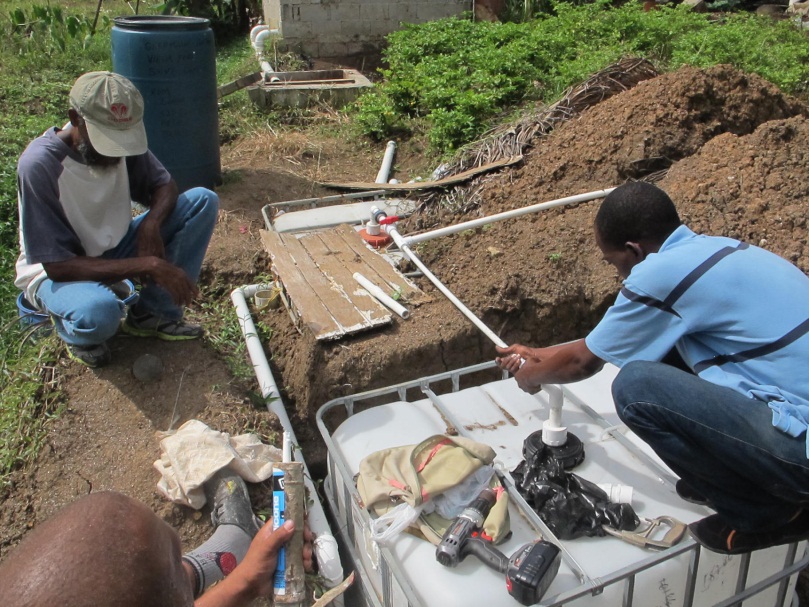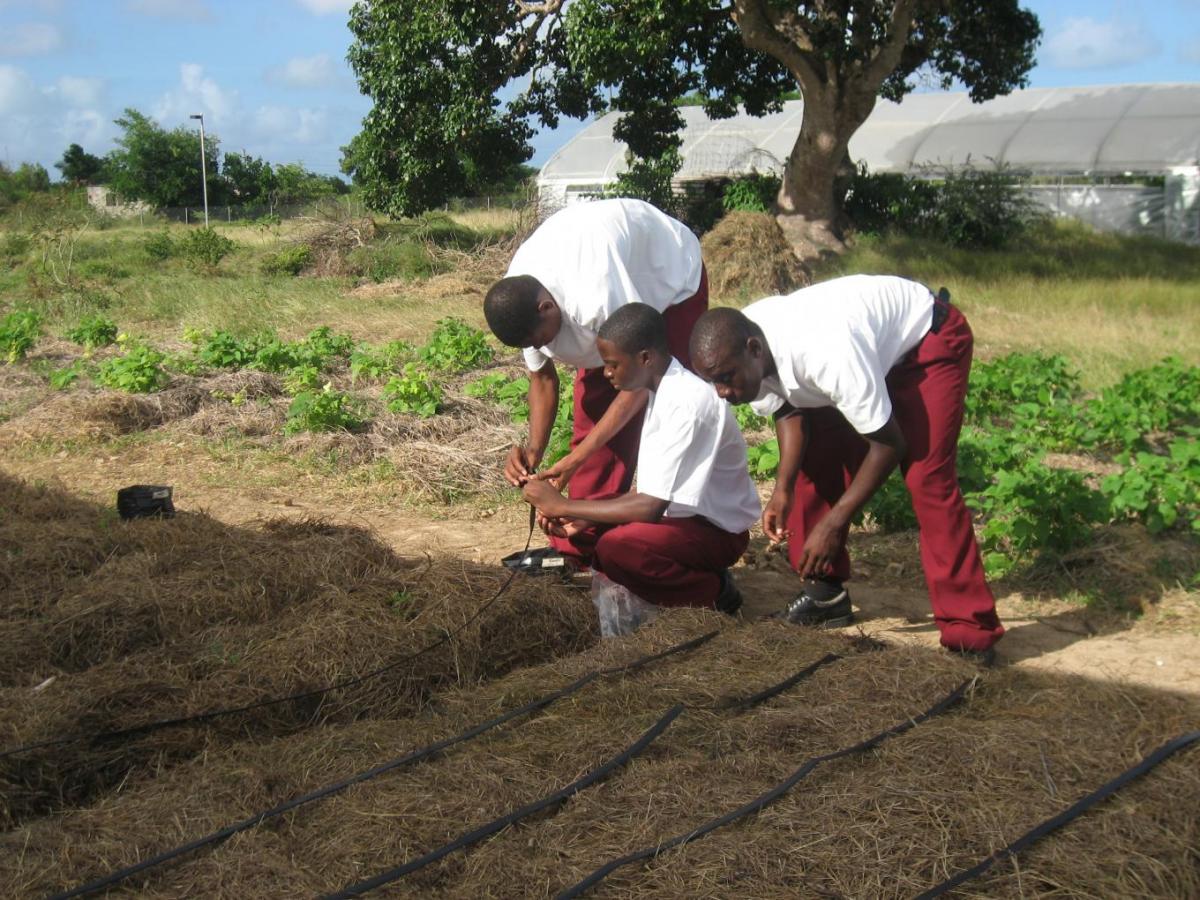A competition organized by IICA and the Ministries of Agriculture rewarded successful cases of technology use and good practices for addressing and minimizing the impact of climate change on agriculture.

San José, 26 August 2016 (IICA). Six organizations in Caribbean countries have taken a step forward in adapting to and mitigating the impacts of climate change, and are setting an example in each of their countries. The Inter-American Institute for Cooperation on Agriculture (IICA) and its partners recently rewarded their positive contributions to the environment and agriculture.
A competition entitled “Climate SmartAgriculture: Stories from Farmers in the Eastern Caribbean States,” began in March 2016 culminated in August with recognition of a national winner from each country. The organizations recognized are Sir McChesney George Secondary School in Antigua and Barbuda; the National 4-H Local Leaders Association, a youth development organization in Dominica;the Grenada Organic Agriculture Movement; the New River Farmers’ Co-operative Society of Saint Kitts and Nevis; the Belle Vue Farmers’ Cooperative of Saint Lucia; and Richmond Vale Academy in Saint Vincent and the Grenadines.
All the success stories exemplify how the use of alternative agricultural practices and technologies can help make the Caribbean agricultural sector climate-smart and improve its ability to adapt to and become more resilient in the face of climate change.
According to Kelly Witkowski, Agriculture and Climate Change Specialist and coordinator of the competition, the initiative not only identified and disseminated the successful experiences of different entities from the ECS, but also opens an opportunity to replicate those practices within the same country or in other nations of the region.

Some of the most noteworthy technologies implemented by the organizations were:
- improved management of water and soils,
- use of renewable energy,
- crop diversification,
- introduction of climate-resilient crop varieties,
- alternative farming methods,
- agroforestry, and
- capacity-building.
Through the implementation of the abovementioned practices, the organizations achieved significant results, such as reducing the use of fertilizers, enhancing water use efficiency, reducing dependency on imports, increasing the availability of fresh food, improving land fertility, using solar panels, reducing greenhouse gas emissions and the use of fossil fuels, and improving productivity.
From the six national winners, three regional winners were selected: Sir McChesney George Secondary School, the Belle Vue Farmers’ Cooperative, and the Grenada Organic Agriculture Movement.
National level awards ceremonies were held during the month of August and the regional winners will be further recognized in October during the next Caribbean Week of Agriculture, to be held in the Cayman Islands.
The competition was developed with support from the ministries of agriculture in the Eastern Caribbean States as well as other entities. For more information about the initiatives implemented by each organization, contact: kelly.witcowski@iica.int











